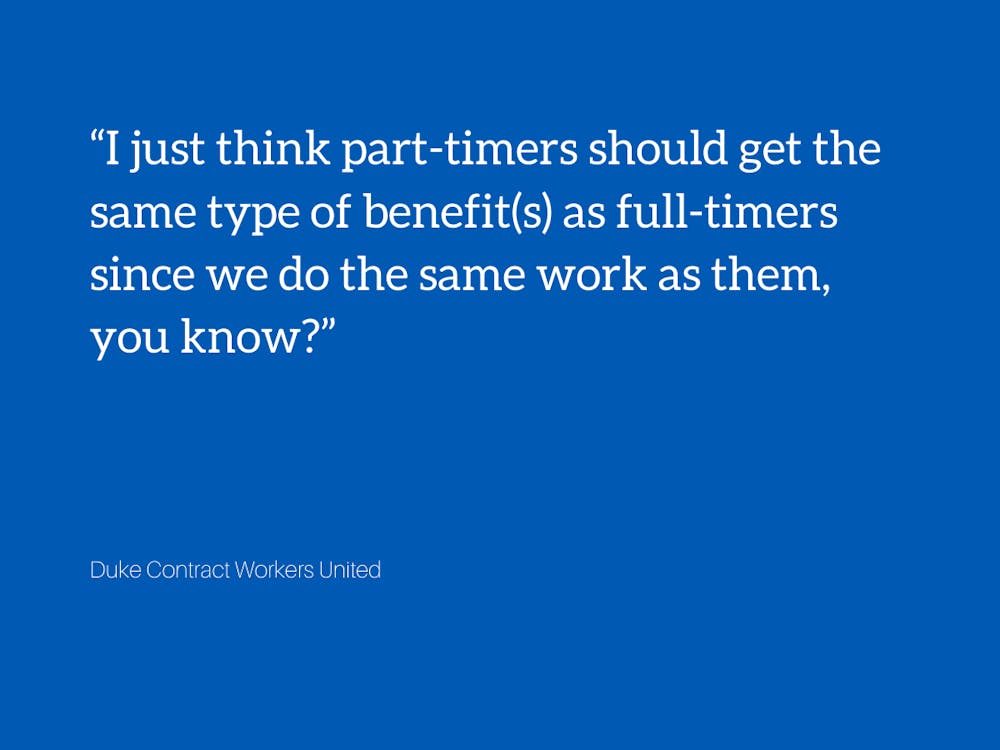If you’ve been inside Duke’s largest dining facility this semester, chances are you’ve met Angel, a 22-year-old food service worker who has worked part-time at Duke since January. Angel was hoping to become a full-time worker soon.
Most staff members in Duke’s many campus dining facilities aren’t actually Duke employees, but are employed by the local vendors Duke contracts with. Angel is one of them.
Angel knew his hours were going to be lower during students’ Spring Break, but at the end of that week, he got a call from his boss letting him know he won’t be able to come back at all until August.
Angel relies on his income from the food service job at Duke to get back on his feet after health problems left him deep in medical debt. Though he’s only 22, Angel and his family—his sister is in grade school, his mom works as a lunch lady and his dad works in construction—rely on his income to pay some of their bills and to pay down some of his enormous medical debt.
“This was my first job I’ve had in a while,” Angel said. “This job has really helped me a lot, and I really didn’t know this was going to happen.”
Food service workers are a vital part of how Duke functions. The vast majority of Duke’s 6,000 undergraduate students live on campus and rely on dining workers for breakfast, lunch, and dinner every day. Most contract workers who work for Duke Dining are only scheduled part-time, though they may actually work over 30 hours in Dining, but for multiple companies. This is because workers who are officially full-time are required to be paid $15 per hour—though they still don’t qualify for any other benefits.
“I just think part-timers should get the same type of benefit(s) as full-timers since we do the same work as them, you know?” Angel said.
Angel wants to know why Duke can’t pay its part-time contracted workers when many smaller restaurants and businesses are still trying to pay theirs. He said it doesn’t have to be their full wage.
“I think Duke should at least just try to pay us something until the summer—we go on break when the students go on break. It doesn’t have to be what we actually get paid, but at least something,” Angel said. “We want to work, we don’t just want to be home. We’re just not getting paid at all.”
Angel hasn’t heard anything from Duke since the day he got his phone call from his boss. Meanwhile, no money is coming in.
“Duke has a lot of money and they can do something about it—they’re not doing anything.”
Editor's note: Frances Beroset (T'19) wrote this guest column in collaboration with Duke Contract Workers United. To learn more about Duke's pay policy, read our coverage.
Get The Chronicle straight to your inbox
Sign up for our weekly newsletter. Cancel at any time.

